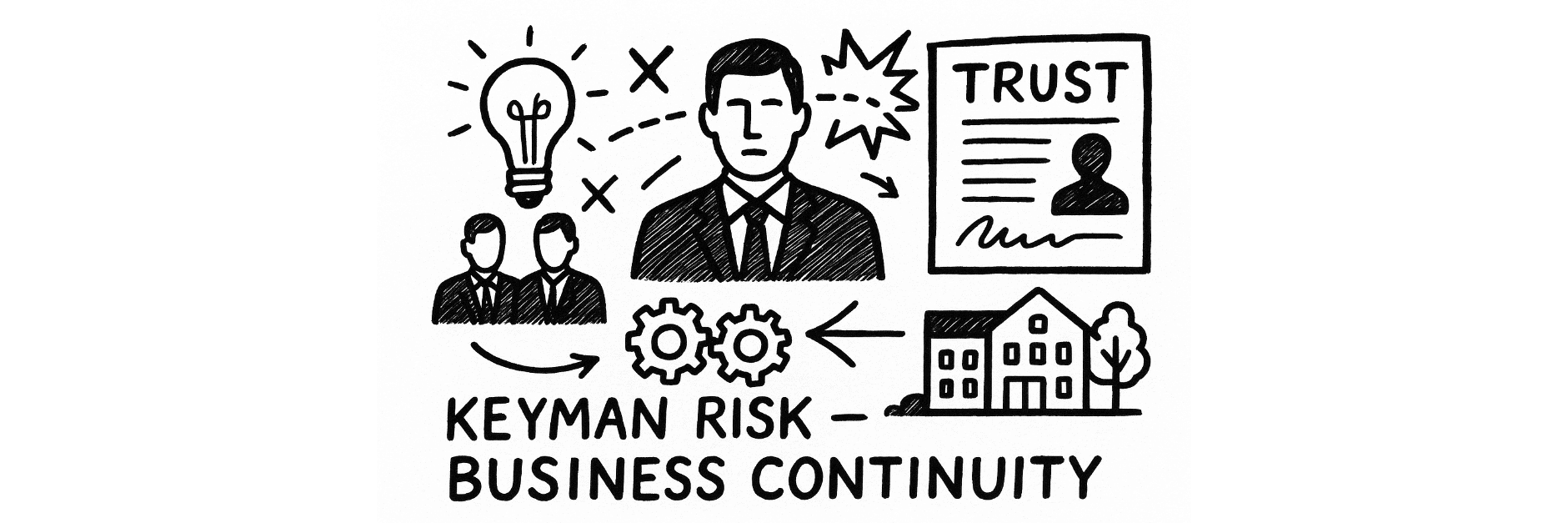What Happens If Your Cofounder Passes Away Tomorrow?
You’ve spent years building your business with one or more trusted partners. Together, you’ve weathered ups and downs, grown your customer base, hired employees, and maybe even passed the million-dollar revenue mark. The business isn’t just a source of income anymore. It’s a major asset, and a legacy.
But here’s a tough question.
What happens if your cofounder passes away unexpectedly?
It’s not pleasant to think about, but it’s a scenario that too many small medium business (SMB) owners are unprepared for. Without a proper succession plan, one partner’s death can create chaos, legal complications, and financial strain for both the business and the surviving family members.
Every week, I’ll be sharing practical tips and invaluable knowledge to guide you on your path to financial independence.
The Risk of Doing Nothing
Let’s say your cofounder owns half the business. There’s no formal agreement on what happens to their shares. One day, tragedy strikes. Now their spouse or children inherit the shares, possibly without the knowledge, experience, or interest to help run the company.
Suddenly, you’re expected to make business decisions with a grieving spouse or family members who may want to sell their shares quickly, take cash out of the business, or get involved in day-to-day operations without understanding how things work.
This could lead to disputes, breakdowns in decision-making, and maybe even the collapse of the business.
Why a Trust-Based Succession Plan Makes Sense
A trust-based plan gives SMB owners a reliable way to protect the business while still taking care of their families. Here’s how it can work in a typical SMB setting:
- The cofounders sets up a trust and transfers their business shares into it.
- The cofounders sign a buy-sell agreement, which outlines what happens if one of them passes away. Typically, the remaining partners agrees to buy the shares from the estate.
- A life insurance policy is used to fund this agreement. When death occurs, the insurance payout goes into the trust.
- The trustee then sells the deceased’s shares to the surviving partners (as per the agreement) and uses the proceeds to provide for the family.
This way, the family of the deceased gets financial support, and the surviving partners retains full control of the business without conflict.
If this is something that you want to consult and get personalised advice based on your circumstances, click here to contact our experts.
Benefits of This Approach
For SMB owners, this setup offers clear advantages:
- Avoids family interference in business decisions: The business stays with someone who knows how to run it, while the family is taken care of financially.
- Reduces disruption: Operations continue smoothly, staff retain confidence, and client relationships remain intact.
- Simplifies the legal process: Because the shares are held in trust, they don’t get tied up in probate or become subject to family disputes.
- Prevents forced sales or undervaluation: You’re not scrambling to find cash or a buyer in a crisis. The funding and agreement are already in place.
Common Misunderstandings
Some SMB owners think this kind of planning is only for big companies or wealthy families. The truth is, the smaller and more hands-on the business, the more vulnerable it is to succession risks.
Others assume a will is enough. But wills often lead to delays and may not offer the clarity or enforceability needed when emotions are running high.
A trust gives structure, control, and peace of mind. It also works alongside a will.
Final Thoughts
As business owners, we plan for growth, costs, marketing, and hiring. But too often, we overlook the most important plan of all.
What happens when we’re no longer around.
If you have business partners, don’t leave this to chance. A trust-based succession plan, supported by a buy-sell agreement and life insurance, can protect your legacy, your business, and your loved ones.
It’s one of the most responsible decisions you can make.

